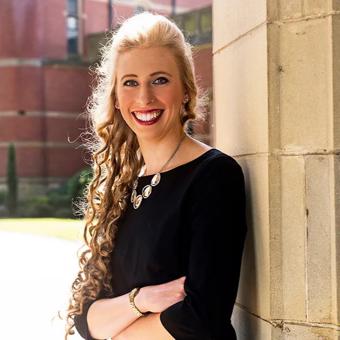Daniel Herman, partner in the personal injury department at Stewarts Law LLP and head of the Leeds office...
What is your role?
My role is split three ways: firstly, I act on behalf of catastrophically injured claimants, mainly clients with spinal cord injuries, pursuing claims for personal injury; secondly, I head the Leeds PI team which comprises 14 fee earners, all of whom deal solely with catastrophic injury cases; thirdly, I manage the Leeds office generally with all that entails.
Why did you become a solicitor?
As a teenager, my interest in the Law grew out of a sense of justice and a desire to right wrongs. Some might say that was a naïve view but it still underpins what I do today.
Where is the best place to go if you want to find out what is really going on in the office?
There are two founts of all knowledge: my managing partner’s office and our reception desk.
What is the best thing about your job?
In terms of my casework, it’s helping clients who have sustained life-changing injuries achieve the very best quality of life and for that life to be as full and independent as possible. Outside my work for clients, I really look forward to the annual meeting of the Stewarts Law Foundation and hearing about the charities that will benefit; in the three years since the Foundation was established, we have donated £1.4 million to various worthy causes.
What is the toughest thing about your job?
I still find it hard to tell someone who has sustained a catastrophic injury that, unfortunately, the circumstances of their accident are such that they have no viable claim for damages. Delivering bad news to an individual who has already been through hell is always tough.
Who has been the biggest influence in your career to date?
I’ve learned a great deal from any number of individuals but the single biggest influence has been John Cahill; he’s been the managing partner of Stewarts Law ever since I joined 13 years ago. He’s shown me how to manage and grow a business whilst always adhering to certain key principles; the most important of which is to ensure that, whatever you do, you should try to do what is right.
What’s the most interesting case you have dealt with?
All my cases have been interesting but those I find particularly interesting are the cases during which I have had to learn about a subject that is completely alien to me; such as trampolining, sauna management, marine engineering and farming! For me, those have been fascinating.
What has been the greatest achievement in your profession to date?
10 years ago, when I was a solicitor of just four years PQE, I was presented with the opportunity to launch Stewarts Law’s Leeds office. A great many people have had a hand in making the Leeds office a success but I’m proud of the part I’ve had to play.
Where do you see your firm in five to 10 years? What are the biggest challenges you will face?
Stewarts Law has enjoyed a period of significant growth over the last five years. The next five years will likely see further growth, not only in our existing practice areas – Aviation & Travel, Clinical Negligence, Commercial Litigation, Competition Litigation, Divorce & Family, Employment, International Arbitration, Investor Protection Litigation and Personal Injury – but also into other areas of high value and complex litigation. Recent changes in the way major pieces of litigation can be funded provide both risks and opportunities; the trick will be balancing those competing factors.
Which person outside the legal sector do you most admire?
Since my son was born five years ago, anything even vaguely father/son related is liable to reduce me to a quivering wreck. Perhaps the finest embodiment of a father’s love for his son is an American man called Dick Hoyt. If you don’t know about Dick Hoyt, type his name into YouTube and prepare to be humbled.
What would you have been if you weren’t a lawyer?
The truth is that I had my heart set on being a lawyer from a relatively young age (full disclosure: my first dream job was to become a bin man but that never materialised). That having been said, I think the life of a sports journalist - travelling the world and writing about world class athletes and the top sporting events - must be difficult to beat.
What would you advise lawyers beginning their legal career today?
I’d find it hard to beat the advice given to me by my training principal on the first day of my training contract: “it’s all about three things Daniel – attendance notes, attendance notes and attendance notes”.
http://www.stewartslaw.com/people/daniel-herman.aspx









